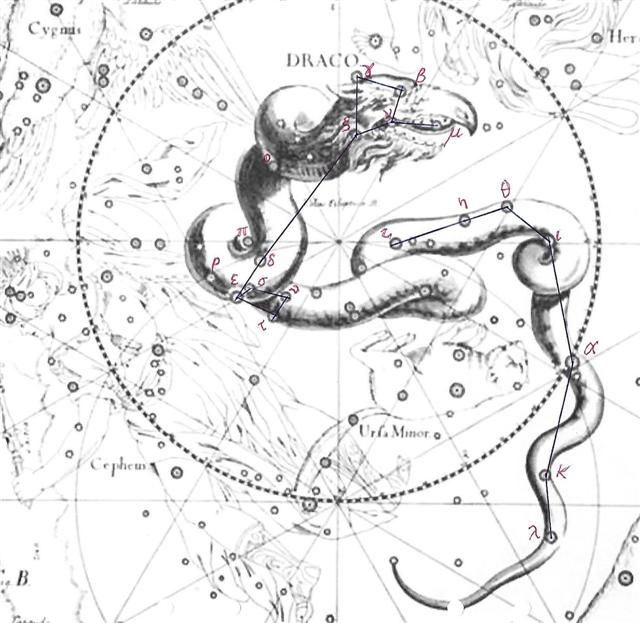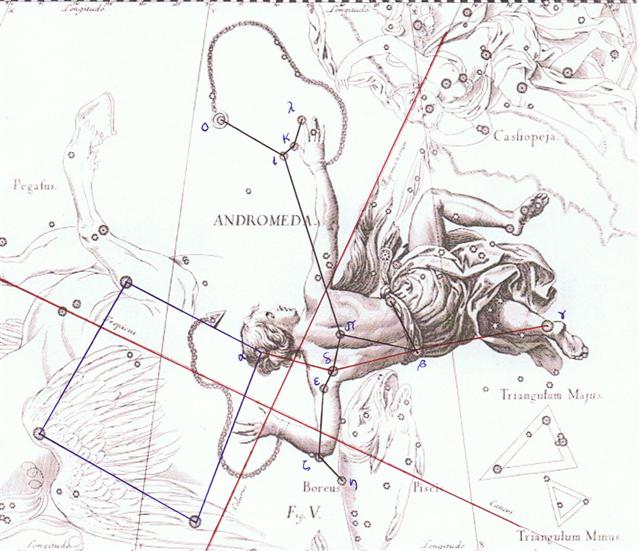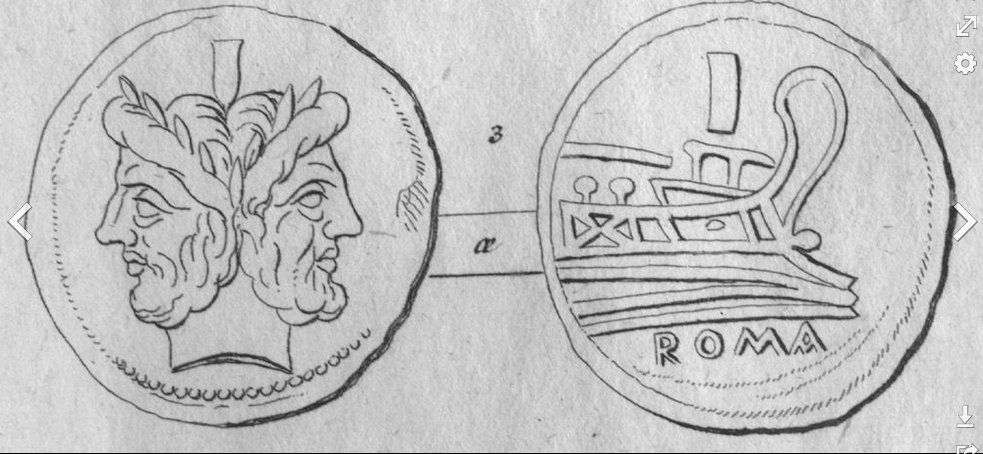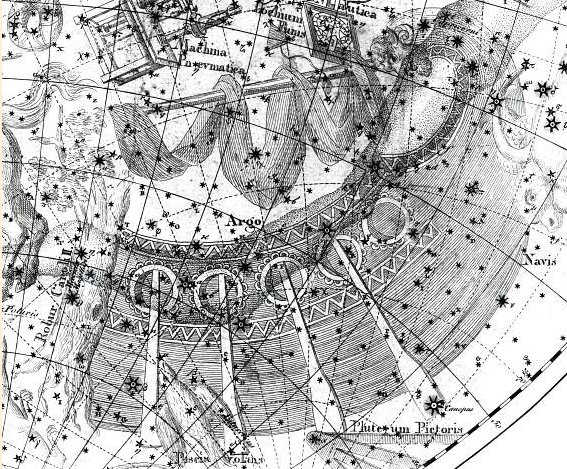The 4th glyph line was ending, it seems, where the Sun reached
day 254 (= 2 * 127) counted from January 1 and when the Full Moon arrived at
March 13 (the day before the π date). The Sun was at Giauzar (λ
Draconis) and the Full Moon was at λ Andromedae:


 |
 |
 |
 |
 |
|
Ga4-23 |
Ga4-24 |
Ga4-25 (108) |
Ga4-26 |
Ga4-27 |
|
JULY 5 |
6 (*107) |
7 |
8 |
9 (190) |
|
JULY 1 |
2 |
3 (*104) |
4 (185) |
5 |
|
φ Leonis (170.0), Alula (170.5), Labrum
(170.6) |
σ Leonis (171.1), λ Crateris (171.6), ι
Leonis, ε Crateris (171.9) |
γ Crateris, π Centauri (172.0), κ Crateris
(172.5), τ Leonis (172.8)
GREDI |
ο¹ Centauri (173.8) |
GIAUZAR
(174.0), ξ Hydrae (174.3), ο² Centauri, λ
Centauri (174.8) |
|
September 7 |
8 |
9 |
10 |
11 (254) |
|
September 3 |
4 |
5 (*168) |
6 |
7 (250) |
|
NAKSHATRA DATES: |
|
JANUARY 4 |
5 (*290) |
6 |
7 |
8 (373) |
|
DECEMBER 31 |
JANUARY 1 |
2 |
3 (368) |
4 |
|
CROSS-BARS |
ο Gruis,
Snowball Nebula
(355.0), τ Oct. (355.3) |
no star
listed (356) |
ι Phoenicis
(357.3), ι Piscium (357.4),
λ ANDROMEDAE
(357.9) |
|
ο Cephei
(353.3),
KERB
(353.6) |
κ Piscium
(354.2), θ Piscium (354.4),
υ PEGASI
(354.9) |
|
March 9 (68) |
10 |
11 |
12 |
13 |
|
March 5 |
6 (*350) |
7 |
8 |
9 (68) |
By counting a 7-day wake from JUNE 24
(St John's Eve), however, a new year could possibly have begun
already with JULY 1 (like the Celtic
year). 16 days earlier was at Ga4-7 (90) and from
τ Puppis (at Ga2-8) - just above
Canopus - to Simiram (ω) there were 234 -
182 (= 52) days. Ga2-8 (38) + 52 = 90 (Ga4-7):
.jpg)
|
APRIL 22 |
23 |
24 |
25 (*35) |
26 |
27 |
(118 = 4 * 29½) |
|
APRIL 18 |
19 |
20 |
21 (*31) |
22 |
23 |
(116 = 4 * 29) |
 |
 |
 |
 |
 |
 |
 |
|
Ga2-2 |
Ga2-3 |
Ga2-4 |
Ga2-5 (35) |
Ga2-6 |
Ga2-7 |
Ga2-8 |
|
no star listed (96) |
β Monocerotis, ν Gemini
(97.0) |
no star listed (98) |
ν Puppis (99.2), ψ3 Aurigae
(99.4), ψ2 Aurigae (99.5)
GEMMA
|
ψ4 Aurigae (100.5), Mebsuta
(100.7) |
SIRIUS
(101.2), ψ5 Aurigae (101.4),
ν Gemini (101.6), ψ6 Aurigae
(101.7) |
τ PUPPIS
(102.2), ψ7 Aurigae (102.4) |
|
June 25 |
26 (6 * 29½) |
27 |
28 |
29 (180) |
30 |
July 1 |
|
SOLSTICE |
June 22 |
23 |
ST JOHN'S EVE |
25 |
26 (177) |
27 |
|
NAKSHATRA DATES: |
|
OCTOBER 22 |
23 |
24 |
25 (*218) |
26 |
27 (300) |
28 |
|
OCTOBER 18 |
19 |
20 |
21 (*214) |
22 |
23 |
24 |
|
Kaus Borealis (279.3) |
ν Pavonis (280.4), κ Cor.
Austr. (280.9) |
Abhijit-22 |
no star listed (282) |
ζ Pavonis (283.4), λ Cor.
Austr. (283.6),
Double
Double (283.7),
ζ
Lyrae (283.8) |
South Dipper-8 |
Sheliak, ν Lyrae (285.1), ο
Draconis (285.5). λ Pavonis
(285.7)
ATLAS |
|
θ Cor. Austr. (281.0),
VEGA
(281.8) |
Φ SAGITTARII
(284.0), μ Cor. Austr.
(284.6), η Cor. Austr., θ
Pavonis (284.8) |
|
December 25 |
26 |
27 |
28 |
29 |
30 (364) |
31 |
|
SOLSTICE (*275) |
December 22 |
23 |
CHRISTMAS EVE |
25 |
26 (360) |
27 |
|
APRIL 29 |
30 |
MAY 1 (*41) |
2 (122) |
41 |
|
APRIL 25 |
26 (*36) |
27 |
28 (118) |
 |
 |
 |
 |
|
Ga2-9 |
Ga2-10 |
Ga2-11 |
Ga2-12 (42) |
|
Mash-mashu-sha-Risū-9 |
ADARA
(104.8) |
ω Gemini (105.4),
Alzirr
(105.7), Muliphein (105.8), Mekbuda (105.9) |
7h (106.5) |
|
θ Gemini (103.0), ψ8 Aurigae (103.2),
ALHENA
(103.8), ψ9 Aurigae (103.9) |
no star listed (106) |
|
July 2 |
(*104 = 8 * 13) |
4 (185) |
5 |
|
June 28 |
29 (*100) |
SIRIUS |
July 1 (182) |
|
NAKSHATRA DATES: |
|
OCTOBER 29 |
30 (303) |
31 (*224) |
NOVEMBER 1 |
|
OCTOBER 25 |
26 |
27 (*220) |
28 |
|
χ Oct.
(286.0),
AIN AL RAMI
(286.2), υ Draconis (286.4), δ Lyrae
(286.3), κ Pavonis (286.5), Alya (286.6) |
ξ Sagittarii
(287.1), ω Pavonis (287.3), ε Aquilae, ε
Cor. Austr., Sulaphat (287.4), λ Lyrae
(287.7), Ascella,
Bered (Ant.) (287.9) |
Al Na'ām-18 /
Uttara Ashadha-21 |
19h (289.2) |
|
NUNKI
(288.4), ζ Cor. Austr. (288.5), Manubrium
(288.8), ζ Aquilae (288.9) |
λ Aquilae (Ant.)
(289.1), γ Cor. Austr (289.3),
τ Sagittarii (289.4), ι Lyrae
(289.5), δ Cor. Austr. (289.8)
|
|
January 1 |
2 |
3 (368) |
4 |
|
December 28 |
29 |
(13 * 28) |
31 (*285) |
|
JUNE 13 |
14 (*85) |
15 |
16 |
17 (168) |
18 |
19 |
|
JUNE 9 |
10 (*80) |
11 |
12 |
13 (164) |
14 |
15 |
 |
 |
 |
 |
 |
 |
 |
|
Ga4-1 |
Ga4-2 |
Ga4-3 |
Ga4-4 |
Ga4-5 |
Ga4-6 |
Ga4-7
(90) |
|
υ¹
Hydrae (148.4),
RAS
ELASET
BOREALIS
(148.7) |
Tseen Ke
(149.9) |
ν Leonis
(150.1), π Leonis (150.6) |
υ²
Hydrae (151.8) |
Al
Jabhah-8 /
Maghā-10
/
Sharru-14 |
λ Hydrae
(153.2) |
Adhafera,
Tania Borealis,
SIMIRAM
(154.7) |
|
10h
(152.2) |
|
AL
JABHAH
(152.4),
REGULUS
(152.7) |
|
August
16 |
17 (229) |
18 |
19 |
20 |
21 |
22 |
|
August
12 (*144) |
13 (225) |
14 |
15 |
16 |
17 |
18 |
|
NAKSHATRA DATES: |
|
DECEMBER
13 |
14
(*268) |
15 |
16 (350) |
17 |
18 |
19 |
|
DECEMBER
9 |
10
(*264) |
11 |
12 (346) |
13 |
14 |
15 |
|
Kuh (331.4), γ Gruis
(331.5) |
no star listed (332) |
η Piscis Austrini
(333.4) |
22h
(334.8) |
ι Pegasi (335.0), Alnair
(335.1), μ Piscis Austrini, υ Piscis Austrini
(335.3), Woo (335.7), Baham, τ Piscis Austrini
(335.8) |
ζ Cephei (336.2), λ
Cephei (336.3), -/270 Lac. (336.7), λ Piscis
Austrini (336.8) |
μ Gruis (337.0), ε
Cephei (337.2), 1/325 Lac. (337.3),
ANCHA
(337.4), ψ Oct. (337.5), α Tucanae (337.9) |
|
Kae Uh (334.0), Al
Kurhah (334.4),
SADALMELIK,
Al Dhanab (334.6), ι Aquarii, ν Pegasi
(334.7) |
|
February
15 |
16 |
17 (14 *
29½) |
18 (414) |
19 |
20 |
21 (52) |
|
February
11 |
12 |
13 |
4-14 |
15 |
16 |
17 (48) |
|
15 |
 |
 |
 |
 |
 |
|
Ga4-23 |
Ga4-24 |
Ga4-25 (108) |
Ga4-26 |
Ga4-27 |
|
JULY
5 |
6
(*107) |
7 |
8 |
9
(190) |
|
JULY
1 |
2 |
3
(*104) |
4 (185) |
5 |
|
φ
Leonis (170.0), Alula (170.5), Labrum (170.6) |
σ
Leonis (171.1), λ Crateris (171.6), ι Leonis, ε
Crateris (171.9) |
γ
Crateris, π Centauri (172.0), κ Crateris
(172.5), τ Leonis (172.8)
GREDI
|
ο¹
Centauri (173.8) |
GIAUZAR
(174.0), ξ Hydrae (174.3), ο² Centauri, λ
Centauri (174.8) |
|
September 7 (250) |
8 |
9 |
10 |
11 |
|
September 3 |
4 |
5
(*168) |
6 |
7
(250) |
|
NAKSHATRA DATES: |
|
JANUARY 4 |
5
(*290) |
6 |
7 |
8
(373) |
|
DECEMBER 31 |
JANUARY 1 |
2 |
3
(368) |
4 |
|
CROSS-BARS |
ο Gruis,
Snowball Nebula
(355.0), τ Oct. (355.3) |
no star listed (356) |
ι Phoenicis (357.3),
ι Piscium (357.4),
λ
ANDROMEDAE
(357.9) |
|
ο Cephei (353.3),
KERB
(353.6) |
κ Piscium (354.2), θ
Piscium (354.4),
υ PEGASI
(354.9) |
|
March 9 (68) |
10 |
11 |
12 |
13 |
|
March 5 (64) |
6
(*350) |
7 |
8 |
9
(68) |
When Ancha (α
Phoenicis) was at the Full Moon (Ga4-7, where 4 * 7 = 28) the prow of the Ship
of the Sun (Argo Navis) would have been destroyed from
having collided
with the trunk
of the Oak Tree, causing a full stop (maro). The 'tree' in front in Ga4-7 -
with 3 + 3 =
6 'double twigs' - could possibly have illustrated how new sprouts
were generated from the prow (horn, tara) of Argo
Navis:

From these old 'splinters' a new fire in the sky
could be generated:

... The trunk
is then uprooted and split into faggots ...
At the time of Gregory
XIII the Old Oak Ship would surely have been finished in day 150
counted from 0h. And at the time of Julius Caesar
ω would have been in day
127 (= 254 / 2) counted from 0h. Only the stern remained - and maybe some
timbers from its prow, floating on the sea.



... A man had
a daughter who possessed a wonderful bow and arrow, with
which she was able to bring down everything she wanted.
But she was lazy and was constantly sleeping. At this
her father was angry and said: 'Do not be always
sleeping, but take thy bow and shoot at the navel of the
ocean, so that we may get fire.'
The
navel of the ocean was a vast whirlpool in which sticks
for making fire by friction were drifting about. At that
time men were still without fire. Now the maiden seized
her bow, shot into the navel of the ocean, and the
material for fire-rubbing sprang ashore.
Then the old
man was glad. He kindled a large fire, and as he wanted
to keep it to himself, he built a house with a door
which snapped up and down like jaws and killed everybody
that wanted to get in. But the people knew that he was
in possession of fire, and the stag determined to steal
it for them. He took resinous wood, split it and stuck
the splinters in his hair. Then he lashed two boats
together, covered them with planks, danced and sang on
them, and so he came to the old man's house. He sang:
'O, I go and will fetch the fire.' The old man's
daughter heard him singing, and said to her father: 'O,
let the stranger come into the house; he sings and
dances so beautifully.'
The
stag landed and drew near the door, singing and dancing,
and at the same time sprang to the door and made as if
he wanted to enter the house. Then the door snapped to,
without however touching him. But while it was again
opening, he sprang quickly into the house. Here he
seated himself at the fire, as if he wanted to dry
himself, and continued singing. At the same time he let
his head bend forward over the fire, so that he became
quite sooty, and at last the splinters in his hair took
fire. Then he sprang out, ran off and brought the fire
to the people ...

|



.jpg)














